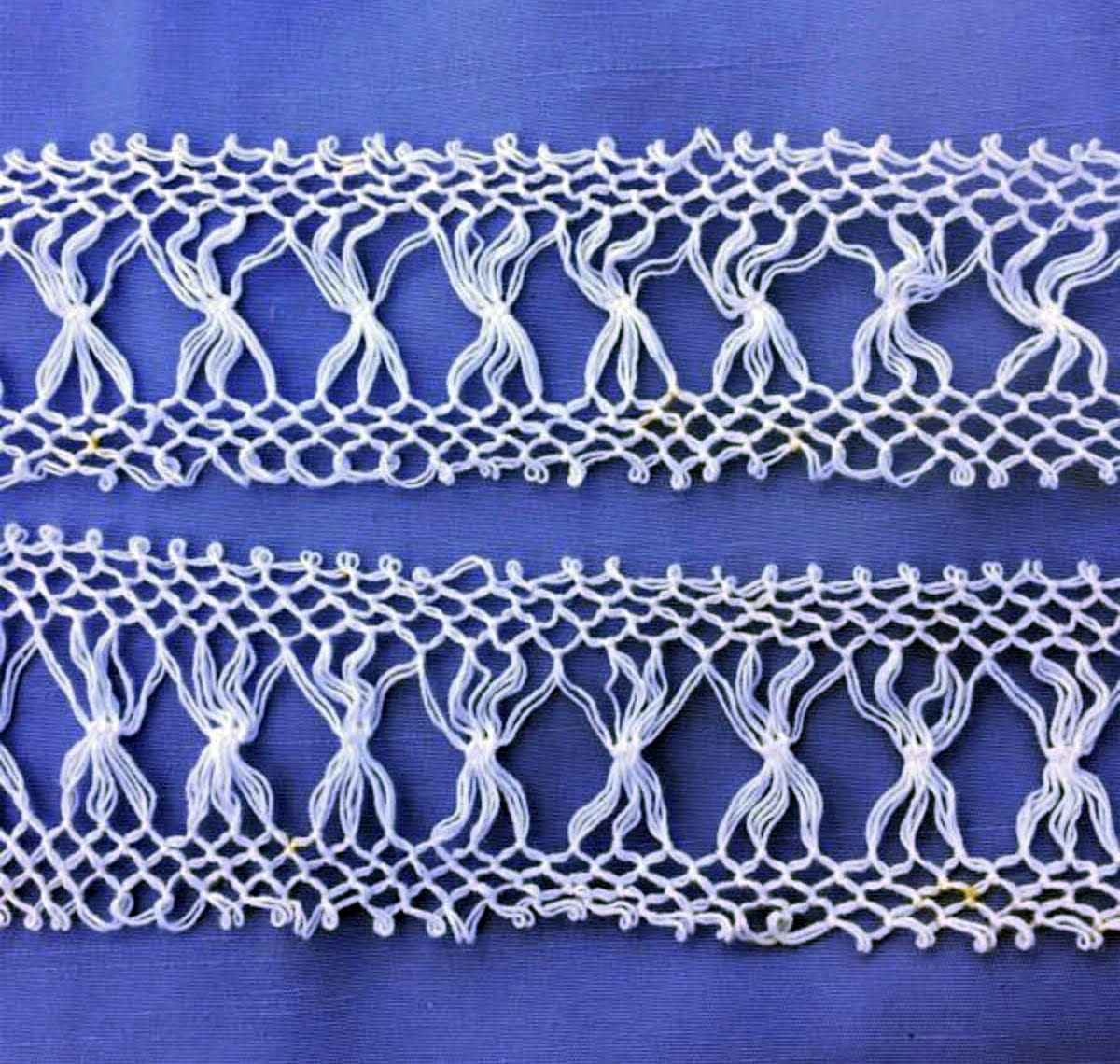Backstories and Backyards: Broomsticks and Lace
Considering the array of "women's work" in Floyd County over one hundred years ago, it shouldn't have been a surprise to connect a humble broom to fancy needlework. Women of the household often made their very own brooms, and the broom sweep itself required stitches to bind the bunches together.

By Kathleen Ingoldsby
For the farm homemaker, providing pretty textiles didn't always entail the use of a loom. During Floyd County's early years, home needlework was practiced widely using only careful handwork and few tools. The practical arts of lacemaking, crocheting, tatting, and knitting could often rise to the level of artistic endeavors during winter evenings by the fire.
Broomstick lacemaking incorporates crocheting with elements of knitting. After an initial row of chain stitches, (in multiples of three or six), the maker picks up a loop from each chain and transfers it to a broomstick. Next, stitches are grouped in bunches and worked off. The use of a broom handle creates an open, airy lace.
The old school building converted into three floors of almost all types of fabrics available, and craft supplies! Plus - an extra building of upholstery fabrics and supplies!
220 N. Locust St., Floyd VA
(540) 745-4561
sfabrics@swva.net
When families bought animal feed in printed cotton feed sacks, the fabric might end up in a shirt, an apron, or a dress, and the cotton string binding was saved. Broomstick lace made good use of this string.
Effie King Brown (1910-2012), a former teacher and Principal of Check Elementary School, mastered many different forms of needlework. The daughter of Thomas Merritt and Mattie Yates King, Effie, from the age of five, learned to quilt, crochet, knit, and sew from her mother and older sisters.
Considering the array of "women's work" in Floyd County over one hundred years ago, it shouldn't have been a surprise to connect a humble broom to fancy needlework. Women of the household often made their very own brooms, and the broom sweep itself required stitches to bind the bunches together.

